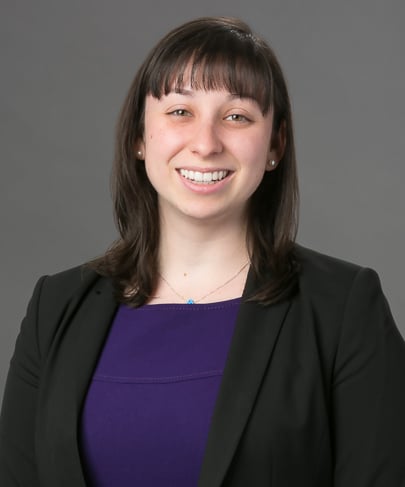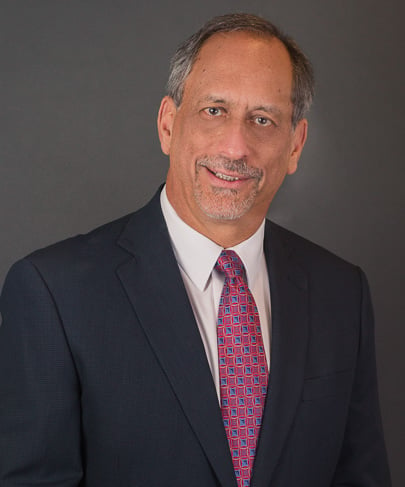Stark Law and Anti-Kickback Statute Waivers for COVID-19
DOWNLOAD PDF- Erman, Erica A. Levy, Jr., Ralph
- Industry Alerts
Click “Subscribe Now” to get attorney insights on the latest developments in a range of services and industries.
In light of the COVID-19 pandemic, on March 30, 2020, the Secretary of the U.S. Department of Health and Human Services (the “Secretary”) released blanket waivers (the “Waivers”) under Section 1135 of the Social Security Act (the “Act”) as to certain referral-related activities that would normally result in sanctions under the Federal Physician Self-Referral Law, 42 U.S.C. 1395nn (the “Stark Law”). Shortly thereafter, on April 3, 2020, the Office of the Inspector General (“OIG”), the entity that enforces the Federal Anti-Kickback Statute (“AKS”), issued a policy statement that it would not seek “administrative sanctions” for conduct that complied with certain of the Secretary’s Waivers. Health care providers should be aware of the scope and limitations on these newly announced waivers.
The Stark Law Waivers
The Stark Law prohibits referrals between a physician (or immediate family member) and an entity for “designated health services” paid for by Medicare or Medicaid if there is a financial arrangement between the entity and the physician or the physician’s immediate family. Financial arrangements include direct and indirect ownership, investment, and compensation arrangements. The Stark Law is a strict liability statute, meaning proof of ill intent is not required for there to be a violation. However, exceptions protect certain specified arrangements which strictly meet their requirements. Sanctions that can be imposed under the Stark Law include denial of payments, requiring refunds, and imposing civil monetary penalties and exclusions. Similar to the Stark Law exceptions, the Waivers exempt certain conduct from liability for violation of the Stark law during the period of the public health emergency.
Under Section 1135 of the Act, the Secretary can temporarily waive or modify sanctions imposed under the Stark Law. Recognizing the need for flexibility during this emergency period, the Secretary has used its authority under Section 1135 to waive sanctions for certain good-faith arrangements between physicians and entities to provide care that, under normal circumstances, would not comply with the Stark Law. These Waivers only apply during the emergency period and if the requirements are met. However, the Secretary did back date these Waivers to March 1, 2020, so that arrangements that began on or after that date are protected.
The first requirement to qualify for any of the Waivers is that the arrangement must be for a “COVID-19 Purpose.” This phrase is broadly defined to mean any one of the following:
- Diagnosis or medically necessary treatment of COVID-19, whether or not the patient is diagnosed with a confirmed case of COVID-19;
- Securing the services of physicians and other health care practitioners to furnish medically necessary services to patients, including services not related to the diagnosis and treatment of COVID-19;
- Ensuring the ability of the provider to address patient and community needs in response to COVID-19;
- Expanding the capacity of health care providers to address patient and community needs in response to COVID-19;
- Shifting the diagnosis and care of patients to appropriate alternative settings in response to COVID-19; or
- Addressing medical practice or business interruption due to COVID-19 in order to maintain the availability of medical care and related services for patients and the community.
So long as the conduct is for a “COVID-19 Purpose,” relationships which would otherwise violate the Stark Law are protected if they comply with one of two types of Waivers. The Waivers are:
The Remuneration Waivers
- Remuneration paid by an entity that is above or below the fair market value for services personally performed by the physician (or the immediate family member of the physician) to the entity.
- Rent paid by an entity that is below fair market value for the entity’s lease of office space from the physician (or the immediate family member of the physician).
- Rent paid by an entity that is below fair market value for the entity’s lease of equipment from the physician (or the immediate family member of the physician).
- Remuneration from an entity that is below fair market value for items or services purchased by the entity from the physician (or the immediate family member of the physician).
- Rent paid by a physician (or an immediate family member of a physician) to an entity for office space that is below fair market value.
- Rent paid by a physician (or an immediate family member of a physician) to an entity for leased equipment that is below fair market value.
- Remuneration from a physician (or an immediate family member of a physician) to an entity that is below fair market value for the use of the entity’s premises or for items or services purchased from the entity.
- Remuneration from a hospital to a physician in the form of medical staff incidental benefits that exceeds $36 for calendar year 2020.
- Remuneration from an entity to a physician (or the immediate family member of a physician) in the form of nonmonetary compensation that exceeds $423 for calendar year 2020.
- Remuneration by an entity resulting from a loan by the entity to the physician (or the immediate family member of the physician): (1) with an interest rate below fair market value; or (2) on terms that are unavailable from a lender that does not receive referrals.
- Remuneration from a physician (or the immediate family member of a physician) to an entity resulting from a loan to the entity: (1) with an interest rate below fair market value; or (2) on terms that are unavailable from a lender that does not generate business for the physician (or the immediate family member of the physician).
The Ownership Waivers
- The referral by a physician owner of a hospital that temporarily expands its facility capacity above the number of operating rooms, procedure rooms, and beds for which the hospital was licensed without prior application and approval of the expansion of facility capacity.
- Referrals by a physician owner of a hospital that converted from a physician owned ambulatory surgical center to a hospital on or after March 1, 2020, provided that: (i) the hospital does not meet the requirements to be a rural provider; (ii) the hospital enrolled in Medicare as a hospital during the emergency period; (iii) the hospital meets the Medicare conditions of participation and other requirements not waived by CMS during the emergency period; and (iv) the hospital’s Medicare enrollment is not inconsistent with the Emergency Preparedness or Pandemic Plan of the state in which it is located.
- The referral by a physician of a Medicare beneficiary for the provision of designated health services to a home health agency: (1) that does not qualify as a rural provider; and (2) in which the physician (or an immediate family member of the physician) has an ownership or investment interest.
- The referral by a physician in a group practice for medically necessary designated health services furnished by the group practice in a location that does not qualify as a “same building” or “centralized building” for purposes of the in-office ancillary services exception.
- The referral by a physician in a group practice for medically necessary designated health services furnished by the group practice to a patient in his/her private home, an assisted living facility, or independent living facility when the physician does not generally treat patients in their private homes.
- The referral by a physician to an entity with which the physician’s immediate family member has a financial relationship if the patient resides in a rural area.
- Referrals by a physician to an entity with whom the physician (or an immediate family member of the physician) has a compensation arrangement that does not satisfy the writing or signature requirement(s) of an applicable exception but satisfies the other requirements of the applicable exception.
The Secretary’s Waivers are an attempt to provide physicians and entities greater flexibility to address health care needs in this emergency. Much like the Stark Law exceptions, these Waivers for COVID-19 Purposes are technical, and physicians and other health care providers should consult with their health care attorneys prior to entering into any arrangement that is intended to take advantage of the waivers.
OIG Policy Statements Regarding Anti-Kickback Enforcement
Under Section 1135 of the Act, the Secretary has the authority to waive or modify sanctions under the Stark Law. For consistency, on April 3, 2020, the OIG issued a policy statement that it would not seek “administrative sanctions” for conduct that complies with the Secretary’s Waivers regarding remuneration (but not for the Waivers regarding ownership).
The AKS makes it illegal for anyone to knowingly and willfully solicit, receive, offer, or pay “any remuneration (including any kickback, bribe, or rebate) directly or indirectly, overtly or covertly, in cash or in kind” in return for referring a patient for any item or service for which payment may be made, in whole or in part, by a Federal health care program (e.g., Medicare, Medicaid, Tricare, etc.). The AKS requires an intent to pay remuneration for a referral; however, the AKS is violated if even one purpose is to induce a referral, regardless of whether there are other valid reasons for the referral. Like the Stark Law, the AKS has exceptions, called Safe Harbors, which can automatically protect an arrangement. Unlike the Stark law, failure to meet the requirements of a Safe Harbor does not make an arrangement illegal under the AKS.
The OIG has advised that if conduct that complies with Waivers 1 through 11 described above (the Remuneration Waivers), it will exercise its discretion and not seek enforcement of “administrative sanctions.” The sanctions OIG cites that it would not seek are permissive exclusion or civil monetary penalties. This exercise of discretion does not apply to the Ownership Waivers. One interesting note is that the OIG made no mention of the criminal sanctions if conduct complies with the Waivers, only that is would not pursue two specific administrative sanctions. Additionally, even though the Waivers are back dated to March 1, 2020, the OIG stated that it would only exercise its discretion for conduct occurring on or after April 3, 2020.
Despite the much needed flexibility that the Waivers provide to respond to COVID-19, like the Exceptions and Safe Harbors, they create many pitfalls for health care providers and entities to which health care providers refer patients. Dickinson Wright’s health care attorneys can advise those impacted in how to comply with the Waivers.
Related Practices
Recent Insights
- Industry Alerts The OIG’s FAQs Related to COVID-19
- Industry Alerts Sixth Circuit Defines False Claims Standards
- Industry Alerts U.S. Supreme Court Splits the Baby as It Stays the Private Employer Vaccine or Test Mandate but Keeps the Healthcare Vaccine Mandate in Place
- April 03, 2025 Industry Alerts Are We Living in The Jetsons’ Future? Telehealth, Broadband, and Policy Shifts
- February 19, 2025 Webinars Reading the Tea Leaves: Investigations, Compliance, and Enforcement Trends under the New Administration
- December 23, 2024 Media Mentions Mark Wilson was recently featured in the Crain's Detroit Business segment, “Notable Nonprofit Board Leaders 2024.”
- December 04, 2024 In the News Ralph Levy’s article, “Impact of Connelly Decision on Buy-Sell Agreements for Physician and Other Practice Groups,” was recently published in the Journal of Health Care Compliance.
- November 11, 2024 In the News Reuters recently published Sara Jodka's article, "HIPAA-free zone? Think again: the surprising state laws regulating collection of health and fitness data."
- October 21, 2024 In the News Dustin Plumadore Joins Dickinson Wright Washington, D.C. Office


